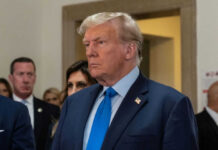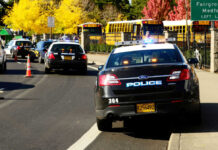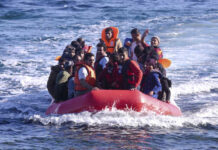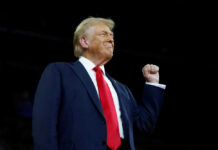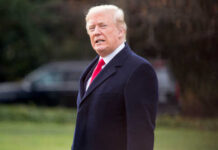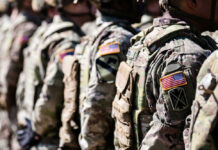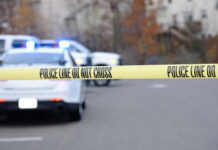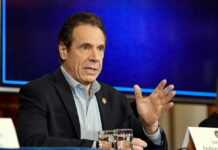
(RightWingJournal.com) – US Marines exchanged gunfire with Haitian gangs at the American embassy, exposing the dangerous consequences of unchecked global instability and failed leftist policies abroad.
Story Snapshot
- US Marines faced direct armed attack by Haitian gangs at the embassy in Port-au-Prince, returning fire to defend American lives and property.
- No Marines were injured, but the incident underscores persistent threats to US personnel amid Haiti’s lawlessness and political collapse.
- Heightened embassy security and ongoing violence reveal the urgent need for strong national defense and decisive foreign policy.
- Experts warn that continued instability threatens US interests and highlights the importance of restoring American strength on the world stage.
Armed Embassy Standoff Reveals Consequences of Global Instability
On November 13, 2025, US Marines stationed at the American embassy in Port-au-Prince, Haiti, came under direct fire from suspected gang members. As violence erupted outside the diplomatic compound, the Marines promptly returned fire, demonstrating the professionalism and resolve expected from America’s military. No Marines were injured during the exchange, though officials have not disclosed the fate of the attackers. This incident exposes the increasing dangers faced by US personnel abroad, particularly in regions where weak governance and rampant criminality have flourished after years of foreign policy missteps.
Haiti’s Collapse and the Roots of the Crisis
Haiti’s chronic instability has persisted for decades, but recent years have seen a dramatic surge in gang violence and political turmoil. Following the devastating 2010 earthquake and the assassination of President Jovenel Moïse in 2021, criminal groups seized control of large swathes of Port-au-Prince, targeting police, civilians, and foreign interests. In March 2024, the Haitian government declared a state of emergency as violence escalated, prompting the US to deploy additional Marines to protect embassy staff. The embassy itself has become a focal point in the battle between legitimate authority and lawless gangs, with the latest shootout highlighting the risks when government control collapses and foreign missions become targets.
Key Players and Their Motivations
The direct involvement of US Marines in an armed standoff underscores the gravity of the situation in Haiti. Charged with protecting American lives and property, the Marines operate under strict diplomatic protocols but are authorized to use force when necessary. The gangs, emboldened by years of ineffective governance and embattled police forces, seek to assert dominance and intimidate foreign presences. The US State Department continues to oversee diplomatic operations, working closely with military and Haitian authorities to ensure security. However, persistent resource shortages and legitimacy challenges plague efforts to restore order. The incident also highlights broader power dynamics, with US interests threatened by local actors who frequently outmatch official forces.
Immediate and Long-Term Implications for US Security
In the short term, embassy operations continue amid heightened security, and travel advisories remain in effect for US citizens in Haiti. The risk to diplomatic personnel has increased, and the potential for further violence looms if the Haitian government cannot regain control. Long-term, this standoff may prompt a reevaluation of US diplomatic protocols in unstable regions. Continued unrest could strain US-Haiti relations, disrupt international aid efforts, and accelerate emigration and displacement. The incident raises urgent questions about how America projects strength and safeguards its interests overseas, especially after years of leftist globalist policies that prioritized appeasement and underfunded defense.
Expert Analysis: Strong Defense and Decisive Leadership Needed
Security experts emphasize the growing threat posed by gangs to foreign missions in Haiti and warn that current events demand robust crisis response measures. Military analysts commend the restraint and professionalism shown by US Marines under fire, noting that such incidents test America’s resolve and readiness. Academic perspectives link Haiti’s gang empowerment to years of political instability and ineffective international intervention. While some call for increased intervention to stabilize the region, others caution against deeper entanglement without clear strategic goals. Across the board, the consensus is clear: American security abroad requires strong leadership, decisive action, and a rejection of failed globalist and “woke” approaches that erode national defense.
Copyright 2025, rightwingjournal.com


